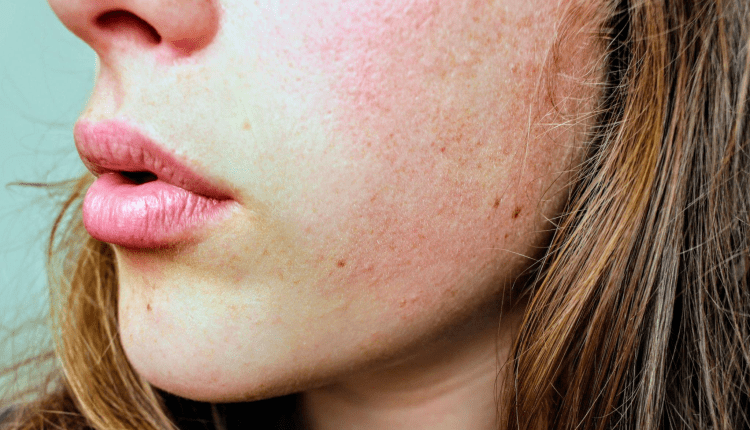6 Skincare Techniques for Dry Skin
Have you had enough of dealing with dry, flaky skin? Do you seek a beautiful, healthy complexion by feeding and hydrating your skin? Good news if that’s the case! In this article, we will go over six different methods of skincare that have been built with dry skin in mind. These methods, which range from using a humidifier to hydrating lotion, can help you have the soft, smooth skin you’ve always desired. If it tickles your interest, continue on!
What is Exactly Dry Skin?
Lack of moisture in the skin characterises the common skin condition known as “dry skin.” Tightness, itchiness, and discomfort are common, and flaky, scaly patches are a common symptom. Many things, including heredity, the natural environment, and even your own habits (such using harsh cleansers or skipping moisturising), can contribute to dry skin.
As a natural consequence of ageing, dry skin is more frequent in adults, but it can affect people of any age. Dry skin requires special attention so that its protective barrier may be preserved and irritation and inflammation avoided.
Does it Need Special Care?
Dry skin does need special care if you want to keep it hydrated and keep it from getting irritated. If you don’t take care of your dry skin properly, it can get flaky, itchy, and even crack. This can be painful and uncomfortable. In extreme cases, dry skin can even cause skin problems like eczema. You can help keep your skin healthy and comfortable by following a skin care routine that is made for dry skin and using products that are made to hydrate and nourish the skin.
-
Use a humidifier:
If your skin is very dry, a humidifier may help you out by adding moisture to the air and therefore hydrating your skin from the inside out. Extreme dryness can cause the skin to become flaky and irritated. To combat this and help the skin stay supple, a humidifier can put moisture back into the air. Having a humidifier is especially useful during the winter months or if you live in a dry environment, when the air is naturally drier.
-
Use Dry Skin Serum:
For dry skin, you may want to consider using a dry skin serum that is formulated to provide hydration and nourishment. These best serum for dehydrated skin may contain ingredients such as hyaluronic acid, which helps to attract and retain moisture in the skin, or plant-based oils, which can help to replenish the skin’s natural oils. To use a dry skin serum, simply apply a few drops to your skin after cleansing and before moisturising, and massage it in until it is fully absorbed. You can use a dry skin serum on its own or layer it under your moisturiser for extra hydration. It is important to choose the best serum for dehydrated skin that is formulated for your skin type and concerns, so be sure to read the label and choose one that is appropriate for dry skin.
-
Avoid hot water:
If you have dry skin, you should probably avoid using too hot water when washing your face or having a shower. Hot water has the potential to remove the skin’s protective oils, making the skin even more dry and irritated. Lukewarm or warm water is preferable since it is easier on the skin. A moderate, hydrating cleanser and a moisturiser used after washing can also help keep your skin hydrated and protected.
-
Moisturise regularly:
To take care of dry skin, you need to moisturise it often. Dry skin doesn’t have enough moisture and can easily lose water, so it’s important to use a moisturiser every day to keep the skin hydrated and healthy. Select a moisturiser specifically designed to hydrate dry skin, If you want to get the most out of your moisturiser, use it right after you wash your face when your skin is still damp. Don’t forget to apply lotion to your dry skin, especially around your face, neck, and hands. If you want your skin to be particularly hydrated while you sleep, try using a richer, emollient moisturiser at night.
-
Exfoliate gently:
Dead skin cells, clogged pores, and a lacklustre look are all things that may be remedied by exfoliating the skin. However, if your skin is dry, you need to take extra care when exfoliating and use a mild treatment.
It is recommended that you use an exfoliant designed for dry skin. It’s important to not scrub too hard when exfoliating. Scrubbing and using too much pressure can cause skin irritation and dryness, so try to avoid doing either. Avoid over-exfoliating more than once or twice each week. Over-exfoliation can worsen dryness and irritation by removing the skin’s protective oils. Applying a moisturiser after exfoliating will help moisturise and protect your skin.
-
Use a face oil:
People with dry skin may benefit from using a face oil since oils may nourish and hydrate the skin. Each of the various varieties of facial oils has its own special advantages. Argan oil and jojoba oil, for example, are emollients that are structurally comparable to the skin’s own natural oils and can thus aid in reestablishing a healthy oil-to-water ratio. Rosehip oil and avocado oil, both of which are high in fatty acids and may thus be used to deeply hydrate the skin, are two further examples.

